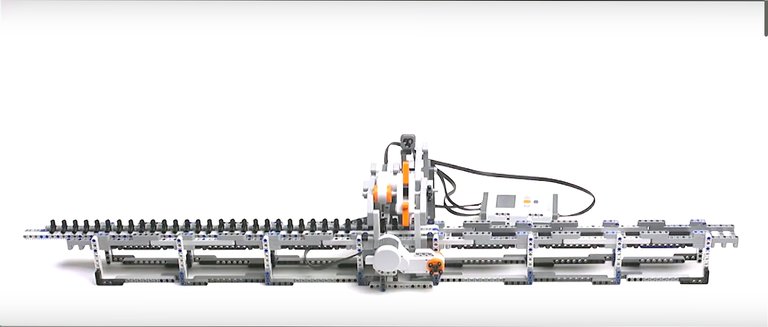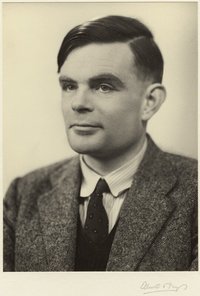On 23 June 2012, the world celebrated the centenary of the famous British mathematician Alan Turing. CWI put together a special exhibition to mark the occasion. For this, former CWI researchers from our Software Analysis and Transformation group Jeroen van den Bos and Davy Landman built a Turing machine with LEGO. It actually works! Watch the movie below to see it in action.
The LEGO Turing machine
To honour the Alan Turing Year 2012, Turings centenary, Centrum Wiskunde & Informatica organized the exhibition 'Turings Erfenis' (Turing's Legacy). Especially for this exhibition two CWI-researchers made a Turing machine out of LEGO.

More about this film and how it was made by Andre Theelen can be found here. Unfortunately the website www.legoturingmachine.org is not available anymore.
What is a Turing machine?
A Turing machine is a theoretical mathematical model of computation that was introduced by Alan Turing in 1936. It is a fundamental concept in computer science and provides a simple yet powerful abstraction for understanding the limits of what can be computed.
Turing machines are used to define the concept of computability. Any problem that can be solved by a computational process can be solved by a Turing machine, given enough time and tape.
About Alan Turing

Picture: National Portrait Gallery, London
Alan Turing was a pioneering mathematician and computer scientist, best known for his conceptualization of the Turing machine, which laid the groundwork for modern computing. During World War II, Turing played a crucial role in deciphering the Enigma code, used by Nazi Germany. His work in breaking the Enigma code was crucial in aiding the Allied forces during the war.
Despite his immense contributions, Turing's life was marred by persecution due to his homosexuality, which was illegal in the UK at the time. In 1952, he was convicted of "gross indecency" and subjected to chemical castration. Tragically, Turing's life ended prematurely in 1954, but his legacy continues to influence and inspire the fields of computer science and artificial intelligence.
